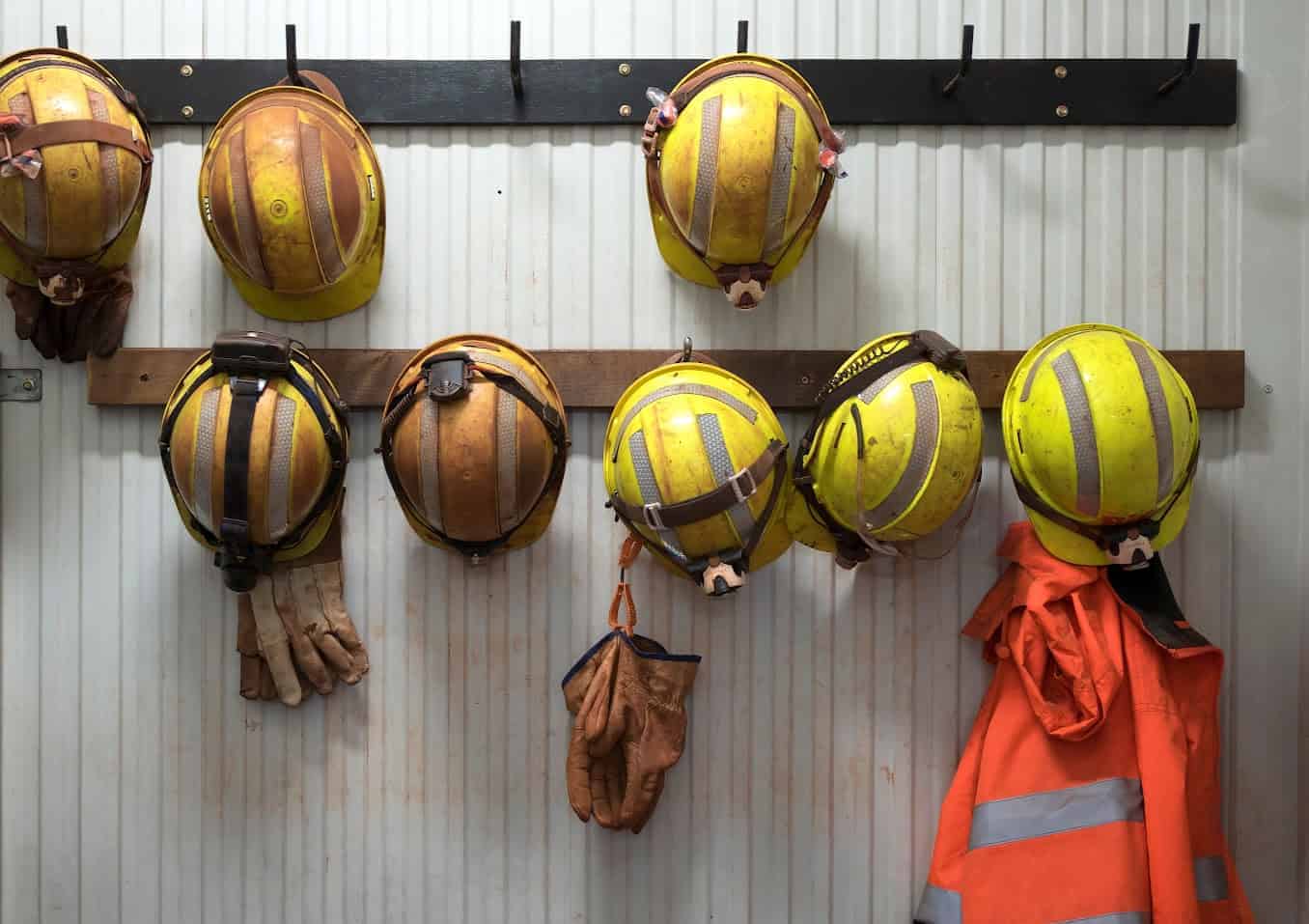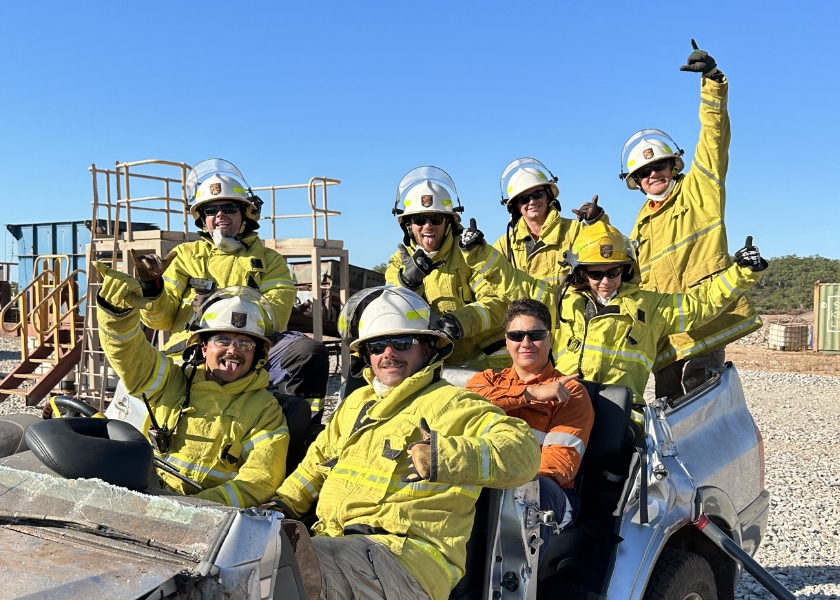In sectors like mining, construction, and heavy industry, the work environment can often be unpredictable and fraught with hazards. From chemical spills and fire outbreaks to mechanical failures and natural disasters, the potential for crisis is ever-present. This volatility doesn’t just pose a risk to assets or operations, but it also jeopardises the most critical component of any workplace: human life. Given these risks, the question isn’t whether your organisation will face an emergency, but when.
Ultimately, the need for well-structured emergency response training cannot be overemphasised; it’s not just a regulatory requirement but a lifeline for employees and businesses alike.
Emergency Situations: What is at Stake?
The immediate and apparent stakes are the lives of employees and team members who keep operations running day in and day out. However, the repercussions of an uncontrolled emergency go far beyond the incalculable loss of life. The aftermath often involves substantial financial losses, including compensation claims, equipment replacement, and operational downtime. Moreover, a poorly managed crisis can severely damage a company’s reputation, sometimes to the point of no return. Regulatory consequences are another concern, as lapses in safety measures and emergency response can result in stiff penalties and even the revocation of operating licenses. In Australia, meeting ASQA standards is not just about ticking a box; it’s about fostering a culture of safety and preparedness.
When you weigh what’s at stake, the value of well-planned, comprehensive emergency response training becomes abundantly clear.
As we move forward, this blog post will delve into the role of emergency response training in mitigating these risks, the different types of emergency response training offered by RIKLAN—a leading Registered Training Organisation in Australia—and why RIKLAN should be your go-to choice for all your training needs. Stay tuned to learn how you can turn emergency response training from a regulatory requirement into a life-saving skillset for your organisation.
So, let’s delve deeper into understanding the crucial role of emergency response training in today’s high-risk sectors.
The Role of Emergency Response Training
Emergency response training is an indispensable part of risk management in sectors like mining, construction, and heavy industry. But what exactly does it entail, and why is it so vital? At its core, emergency response training equips your employees with the skills and knowledge they need to address crises efficiently and safely. Let’s break down its importance further.
Mitigating Risks
First and foremost, the primary goal of any emergency response training is to mitigate risks. With sectors like mining and heavy industry being naturally prone to a myriad of risks such as hazardous material spills, fires, and machinery malfunctions, having a well-trained emergency response team is not just beneficial—it’s crucial. Effective training courses like RIKLAN’s Hazardous Materials (HAZMAT) course or the Certificate III in Public Safety (Firefighting and Emergency Operations) can empower your team to identify, assess, and handle emergency situations, thereby reducing the potential impact of any crisis.
Regulatory Compliance: Meeting ASQA standards in Australia
Beyond the moral and practical imperatives, there is also a legal dimension to emergency response training. In Australia, compliance with the Australian Skills Quality Authority (ASQA) standards is mandatory for operating in high-risk sectors like mining and construction. These standards are in place to ensure that organisations not only tell their employees what to do in an emergency but also to train them adequately. RIKLAN, being a Registered Training Organisation (#51994), offers a variety of nationally accredited courses that meet and exceed ASQA standards, from confined space rescue to wildfire suppression and vertical rescue.
Improved Teamwork and Coordination in Crisis Situations
When an emergency occurs, chaos and confusion are often the immediate aftermath. A well-trained emergency response team, however, can mean the difference between a coordinated effort and utter disarray. Training courses such as RIKLAN’s Certificate III in Emergency Response and Rescue and Operate Pumps Cluster focus not only on individual skills but also on how to work cohesively as a team. Effective teamwork can speed up response times, improve decision-making, and ultimately, save lives.
With all these points considered, the question isn’t whether your organisation can afford to invest in emergency response training, but rather whether you can afford not to. The stakes are simply too high. RIKLAN provides a comprehensive range of training solutions tailored to your industry’s specific needs. Our seasoned consultants and rigorous training modules ensure that your team is well-prepared for any crisis, meeting regulatory requirements while safeguarding both lives and resources.
Types of Emergency Response Training Offered by RIKLAN
When it comes to emergency response training, one size doesn’t fit all. Different sectors and workplaces have distinct challenges and risks. That’s why at RIKLAN, we offer a broad spectrum of training courses designed to equip your team with the specific skills they need to tackle emergencies confidently and competently. Below is a glimpse into some of our most important training offerings:
Hazardous Material Handling: HAZMAT Course
The HAZMAT course is designed to provide comprehensive training in the identification, avoidance, and safe combat of incidents involving hazardous materials. This course is crucial for employees in sectors like mining and heavy industry, where the risk of hazardous material spills is high.
Firefighting and Public Safety: PUA30622 Certificate
The PUA30622 Certificate in Public Safety (Firefighting and Emergency Operations) is targeted at experienced firefighting and emergency response professionals. It equips them with the competencies needed to respond to disasters that endanger lives, property, and the environment.
Advanced Firefighting: ADV_FIRE Course
For those already in roles that involve firefighting, the ADV_FIRE course provides advanced skills and practical knowledge for effectively responding to and extinguishing urban fires. Advanced firefighting skills can be a game-changer in situations involving multiple hazards.
Road Crash Rescue: RCR Course
Vehicle collisions are an unfortunate reality in many sectors. The RCR course is crafted to equip you with essential skills for responding to these specific kinds of emergencies. It’s particularly useful for industries that involve the use of heavy machinery or road transport.
Wildfire Suppression: WILDF_SR and WILDF_RESP Courses
Given the increasing incidences of bushfires in Australia, these courses provide the skills and knowledge to effectively respond to wildfires. They cover everything from the initial response to mop-up and patrol operations, ensuring you’re well-prepared for this specific kind of emergency.
We also offer a variety of other courses covering areas like Vertical Rescue (ROPES), Confined Space Rescue (CSR), and Workplace Policies & Procedures (WPPP), among others. These courses are designed to meet the diverse emergency response training needs of workplaces in the mining, construction, and heavy industry sectors.
Whether you’re looking to equip your team with basic emergency response skills or seeking more advanced training modules, RIKLAN has something to suit your specific needs. Our courses are not only nationally accredited, meeting ASQA standards, but also tailor-made to meet the unique challenges posed by different industries.
Case Studies: Emergency Response in Action
One of the best ways to truly understand the impact of effective emergency response training is to examine real-life cases or well-structured hypothetical scenarios where such training made a critical difference. Here, we highlight a few examples, including the effectiveness of RIKLAN-trained personnel in mitigating risks and safeguarding lives and assets.
Underground Fire in a Mine: Role of RIKLAN’s Training
Imagine an underground fire breaking out in a remote mining operation. The traditional response might involve panic, ineffective use of firefighting equipment, and even loss of life or severe injuries. But for one mining company with a team trained by RIKLAN, the outcome was different. Armed with skills from our Advanced Firefighting (ADV_FIRE) course, the team coordinated smoothly to isolate the affected area, deploy specialised firefighting equipment, and safely evacuate personnel, all within a matter of minutes. Their actions not only contained the fire but also prevented a possible explosion, thereby saving countless lives and valuable resources.
Evacuation during a Chemical Spill: HAZMAT to the Rescue
In another instance involving a chemical manufacturing plant, a hazardous material spill occurred during routine operations. A quick and effective response was essential to contain the spill and safeguard the lives of workers. Thankfully, the plant’s emergency response team had undergone RIKLAN’s Hazardous Material Handling (HAZMAT) course. The team swiftly initiated their emergency protocols, isolating the spill area, and began immediate evacuation while also neutralising the hazardous material. Their actions ensured zero casualties and minimal disruption to plant operations.
Controlling a Wildfire: An On-Ground Report
Bushfires are an unfortunate yet common reality in Australia. In a recent incident, RIKLAN-trained firefighters were among the first responders to a rapidly spreading wildfire. Utilising techniques learned in our Wildfire Suppression courses (WILDF_SR and WILDF_RESP), the team quickly assessed the situation, strategised, and began executing controlled burns to contain the fire effectively. Their quick and effective action prevented the loss of both human and animal lives and reduced damage to property and natural resources.
Why Choose RIKLAN?
When it comes to emergency response training, the stakes are incredibly high. Lives, assets, and the very future of your business could depend on how well your team is prepared for unexpected events. So, choosing the right training provider is not just a decision; it’s an investment in safety and security. With that in mind, why is RIKLAN your best bet? Let’s delve into the reasons.
Years of Industry Experience
RIKLAN has been a trusted name in the industry for several years. Our experience is not just about the duration; it’s about the depth and breadth of understanding we bring to various sectors, be it mining, construction, or heavy industry. We have faced real-world challenges, learned from them, and integrated that knowledge into our training modules. That makes us uniquely equipped to provide comprehensive, practical training that genuinely impacts your team’s effectiveness in emergency situations.
Nationally Recognised Courses
RIKLAN’s courses aren’t just our own concoction of what we think emergency training should look like; they are nationally accredited. For instance, our training modules meet the stringent ASQA standards in Australia, providing you with the assurance that you’re complying with national regulations while also getting top-notch training.
Highly Skilled Consultants
It’s not just about what we teach, but also who teaches it. Our consultants are highly skilled professionals with years of experience in their respective fields. They bring a wealth of practical knowledge, providing invaluable insights during the training. More importantly, their expertise allows them to tailor the training modules to your specific industry needs, making the training as relevant as possible.
24/7 Support
Emergencies don’t run on a 9-to-5 schedule, and neither do we. RIKLAN offers round-the-clock support, meaning you can reach out to us with questions, clarifications, or even for immediate consultancy in case of an emergency. Our dedicated support staff and consultants are always on standby to provide you with the timely help you need.
Wrapping Up
In an industry fraught with inherent risks, ranging from hazardous materials to potentially life-threatening situations, the importance of robust emergency response training cannot be overemphasised. As we’ve explored, emergency response training is not merely a tick-box exercise to meet regulatory standards; it’s a lifeline that can make the difference between life and death, profit and loss, success and failure.
From mitigating risks and ensuring regulatory compliance to improving teamwork and crisis management skills, a well-structured training program is a must-have. RIKLAN’s various courses like HAZMAT, Advanced Firefighting, and Road Crash Rescue provide specialised training tailored for different emergency scenarios. Coupled with real-life case studies, these courses have proven their effectiveness time and again.
RIKLAN stands out as your best choice for emergency response training with our years of industry experience, nationally and internationally accredited courses, highly skilled consultants, and 24/7 customer support.
Don’t wait for an emergency to realise the value of preparedness. Equip yourself and your team with the skills and knowledge to face any emergency head-on. Enrol in RIKLAN’s emergency response training courses today and make the decision that could save lives, protect assets, and secure the future of your business.

